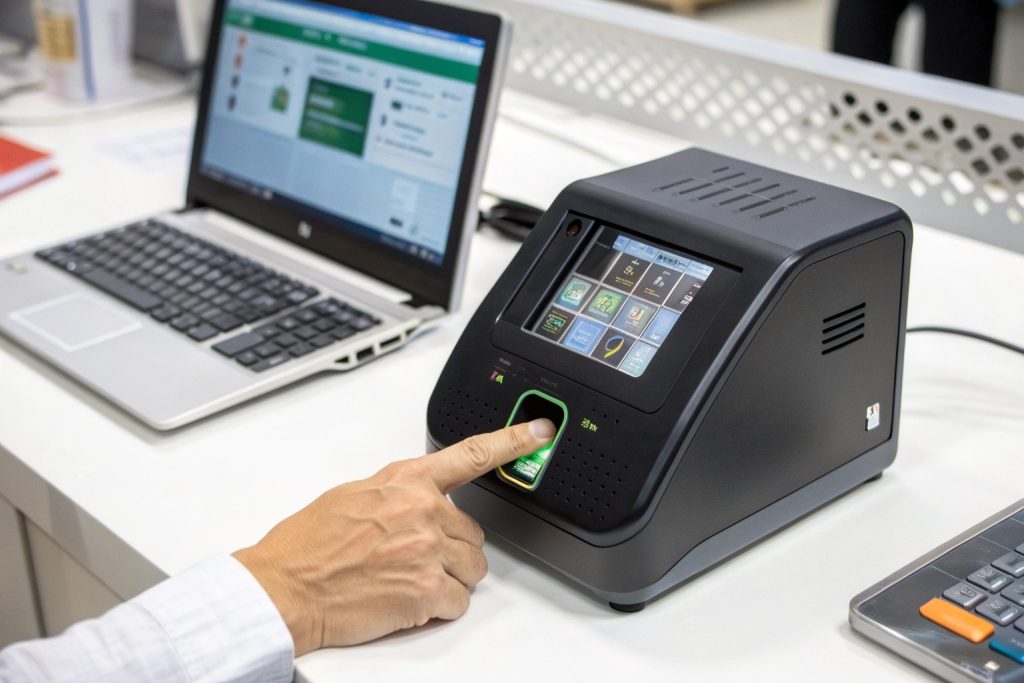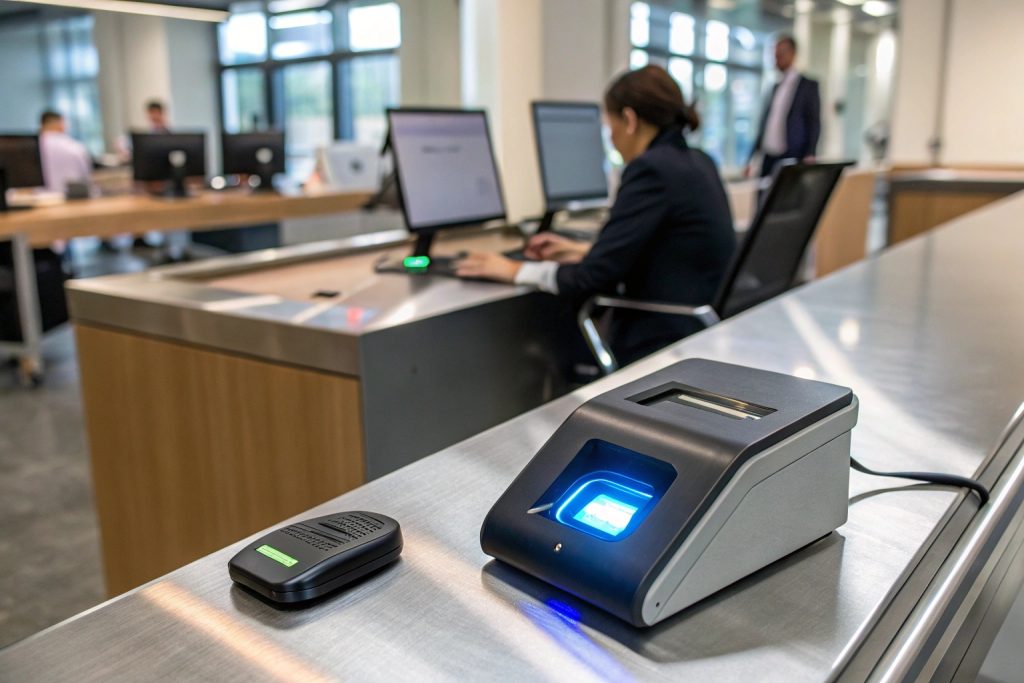
Have you ever struggled with forgotten passwords or lost access cards? I did. That’s when I decided to try a biometric fingerprint scanner. But is it really the perfect solution? Let’s take a closer look at its advantages and disadvantages.
A biometric fingerprint scanner offers high security, speed, and ease of use, making it ideal for access control. However, drawbacks include privacy risks, high costs, and susceptibility to spoofing. Businesses must weigh these factors before adopting this technology.
Once I saw how quick and easy it was to use a fingerprint scanner, I thought it was the answer to all security problems. But soon I realized, it isn’t flawless. Let’s dive deeper into its benefits and drawbacks to understand it better.
Table of Contents
- How Does a Biometric Fingerprint Scanner Work?
- What Are the Advantages of a Biometric Fingerprint Scanner?
- What Are the Disadvantages of a Biometric Fingerprint Scanner?
- Where Are Biometric Fingerprint Scanners Used?
- Conclusion
How Does a Biometric Fingerprint Scanner Work?
A biometric fingerprint scanner captures a user’s fingerprint and turns it into a digital template. The scanner compares this template with stored data to verify identity.
A biometric fingerprint scanner works by analyzing unique fingerprint patterns and turning them into a digital format for authentication. This ensures quick and secure access to systems or locations.
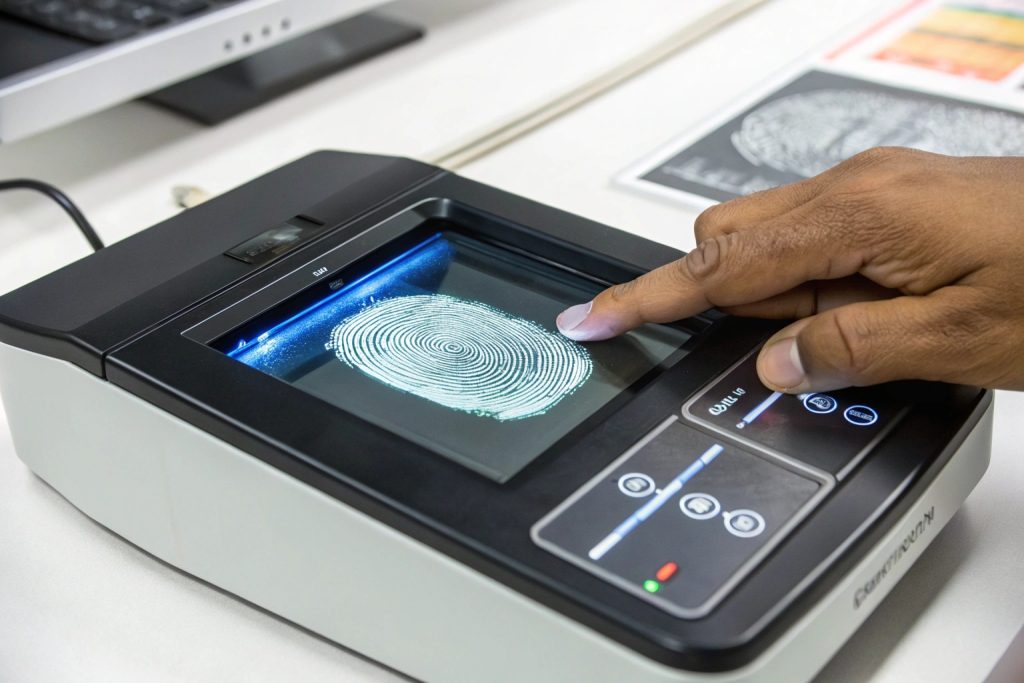
How Fingerprint Scanners Process Data
| Sensor Type | How It Works | Pros | Cons |
|---|---|---|---|
| Optical | Uses light to capture fingerprint images | Affordable, widely used | Can be fooled by high-res images |
| Capacitive | Measures electrical signals from ridges and valleys | More secure, difficult to fake | More expensive |
| Ultrasonic | Uses sound waves to map fingerprints | Works on wet or dirty fingers | Costly, not widely available |
What Are the Advantages of a Biometric Fingerprint Scanner?
Many businesses use biometric fingerprint scanners to improve security and simplify access. Let’s take a closer look at their main benefits.
Biometric fingerprint scanners offer security, speed, cost-effectiveness, and reduce human error. They remove password issues and make authentication easier.
Why Businesses Prefer Fingerprint Scanners
1. High Security and Accuracy
A biometric fingerprint scanner ensures that only authorized users can gain access. Unlike passwords, fingerprints cannot be stolen or forgotten.
2. Speed and Convenience
No more password resets. A fingerprint scan takes less than a second, making access smooth and fast.
3. Long-Term Cost Savings
Although the initial cost is high, businesses save money by eliminating password management and reset costs.
4. Scalable for Organizations
Fingerprint authentication fits well into large systems used by banks, offices, and government agencies.
What Are the Disadvantages of a Biometric Fingerprint Scanner?
Although biometric fingerprint scanners have many benefits, they also have some clear downsides. Let’s explore them.
Biometric fingerprint scanners pose privacy risks, require high initial costs, and can be vulnerable to spoofing. Environmental factors may also affect their reliability.
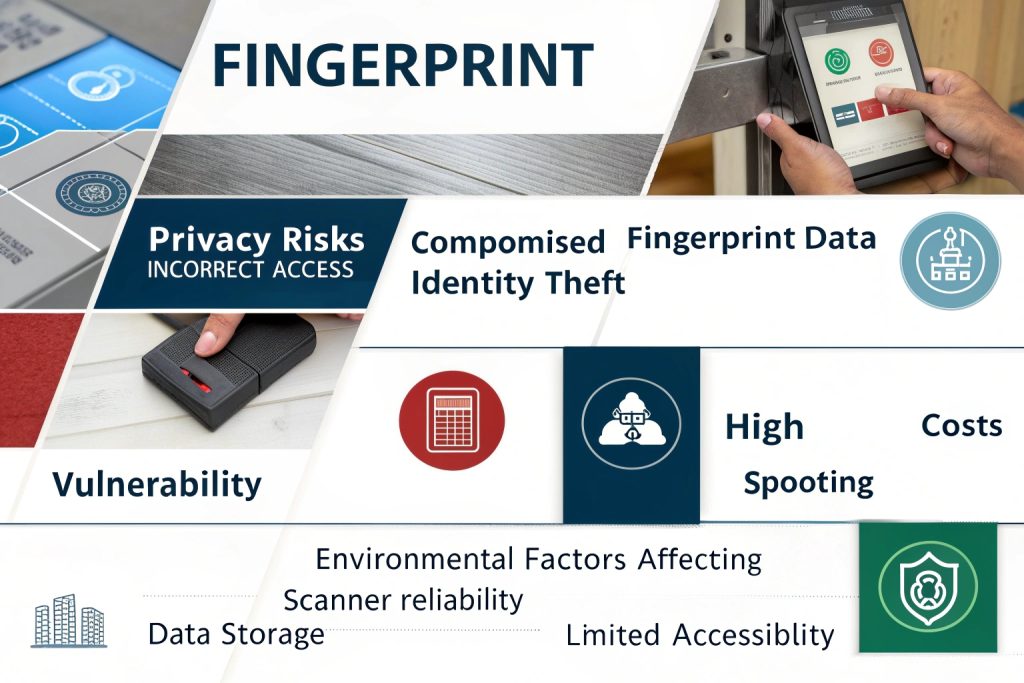
Challenges of Fingerprint Scanners
1. Privacy Concerns
Biometric data, once stolen, can’t be changed like a password. Hackers target fingerprint databases, making security breaches a major risk.
2. False Positives and Negatives
No system is perfect.
– **False positives** grant access to unauthorized users.
– **False negatives** deny access to real users.
3. High Installation Costs
Businesses must pay for the hardware, software, and ongoing maintenance, making it expensive for smaller companies.
4. Vulnerability to Spoofing
Advanced hackers can replicate fingerprints using high-resolution images or 3D-printed molds.
5. Environmental Limitations
Fingerprint scanners can have trouble with wet, dirty, or injured fingers, making them unreliable in harsh environments.
Where Are Biometric Fingerprint Scanners Used?
Biometric fingerprint scanners are used across many industries. Let’s see where they make a real difference.
Biometric fingerprint scanners are used in banking, government, offices, and healthcare to enhance security and authentication.
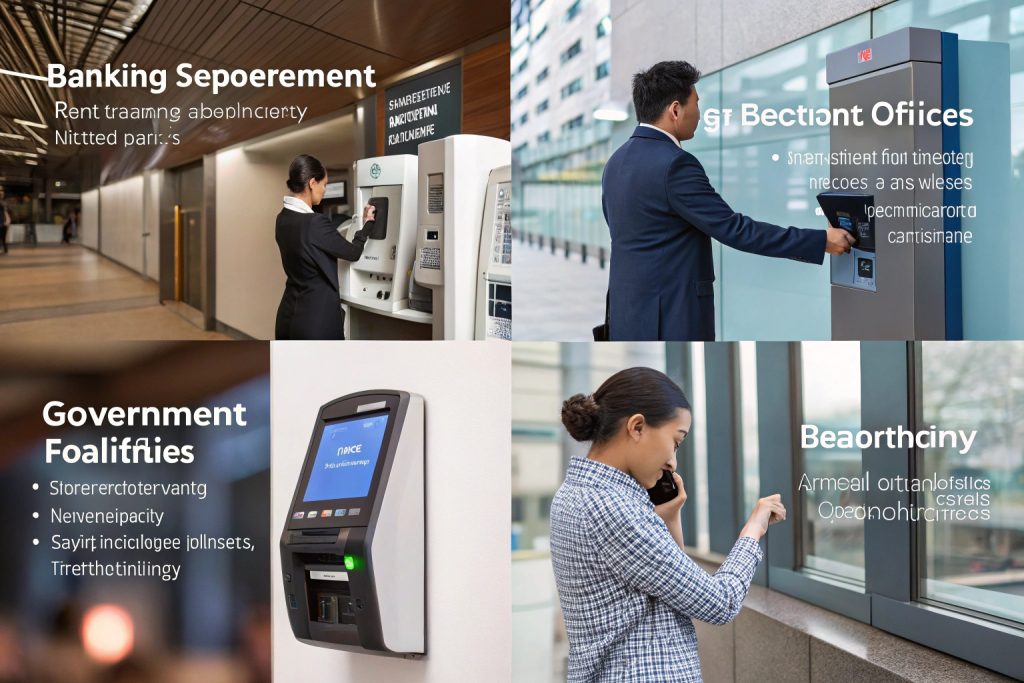
Dive Deeper: Real-World Applications
| Industry | Use Case | Benefit |
|---|---|---|
| Banking | ATM authentication | Prevents fraud |
| Government | National ID & border control | Verifies identity |
| Corporations | Office access control | Enhances security |
| Healthcare | Medical record access | Reduces identity theft |
Conclusion
Biometric fingerprint scanners provide security, speed, and cost-effectiveness, but privacy risks and high costs remain challenges. Businesses must evaluate their needs before adopting this technology.

